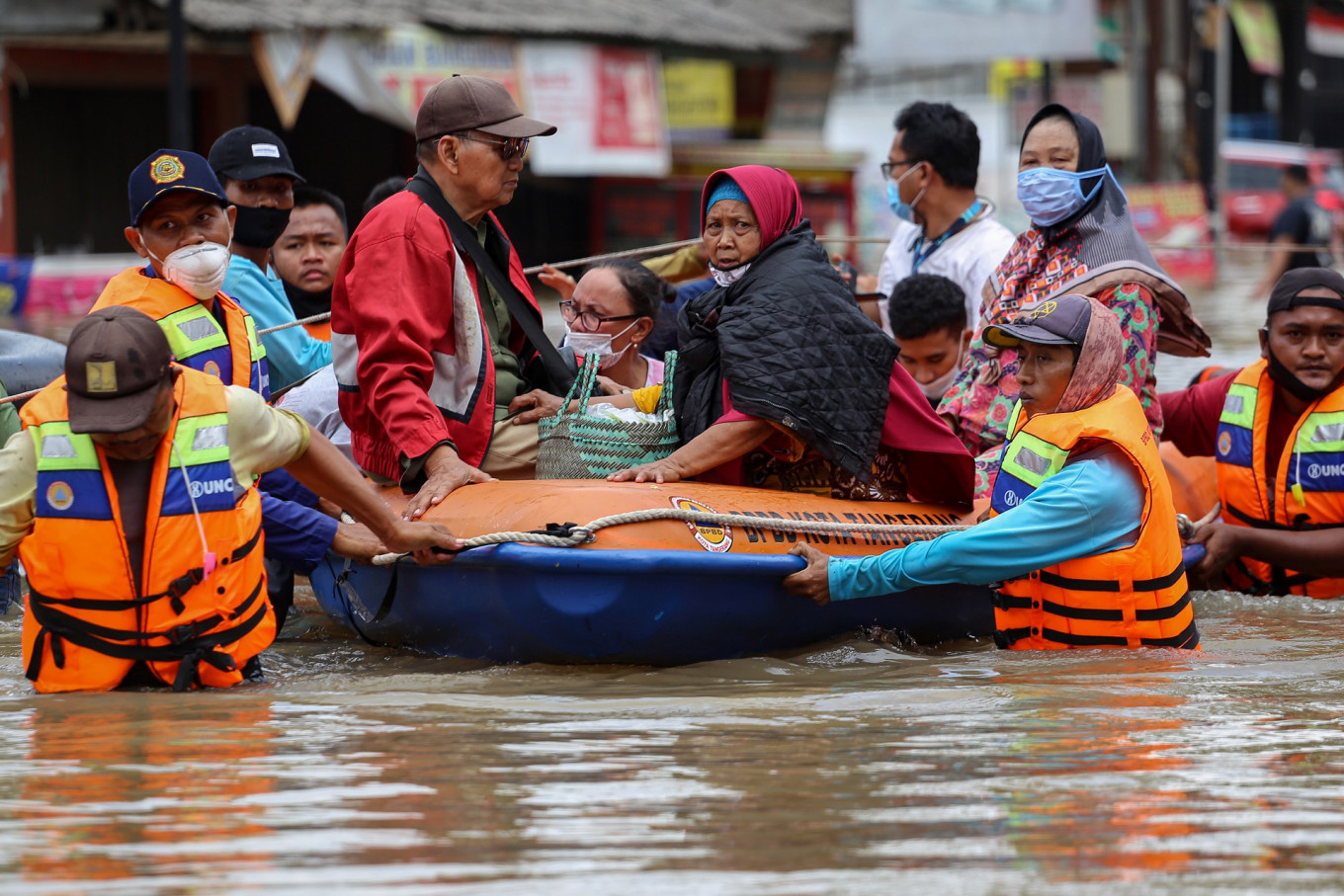Popular Reads
Top Results
Can't find what you're looking for?
View all search resultsPopular Reads
Top Results
Can't find what you're looking for?
View all search resultsSalvaging the heating planet
The reluctance of countries, including Indonesia, to make pledges to significantly reduce emissions, and take drastic action to mitigate the warming of the planet is discouraging.
Change text size
Gift Premium Articles
to Anyone
A
landmark UN climate report published on Monday sounded another deafening alarm about a warming Earth and the impending catastrophes it may entail.
The Intergovernmental Panel on Climate Change (IPCC) reported that global warming is expected to hit 1.5 degrees Celsius above the preindustrial level in early 2030, a decade earlier than projected three years ago. It may get worse if countries fail to reach net-zero CO2 emissions and significant reductions in other greenhouse gases.
In a different time, the science-based report might be easily dismissed as fear-mongering or an overstatement given drastic changes it recommends that governments and corporations undertake.
But with the pandemic and unexpected natural disasters happening in unexpected places, it is getting harder to turn a blind eye. What were the chances that flash floods could ravage a properly disaster-mitigated country like Germany? Heatwaves in Greece have caused hundreds of wildfires that are burning all across the country.
As the world’s largest archipelagic state, and one that sits on the Pacific Rim of Fire, Indonesia has long coexisted with natural disasters. This is not to mention poor legislation that has made lives more difficult for communities living near mining sites, forests or oil wells. The Mining Advocacy Network (Jatam) reports that more than 50 small islands suffer mining exploitation, some of which has displaced local communities.
When United States President Joe Biden reminded about the risk of sinking Jakarta recently, it was just a speck of dust from the many climate challenges that Indonesia is facing.
Earlier this year, Cyclone Seroja wreaked havoc in small islands in East Nusa Tenggara. While the country has endured months of the pandemic, it still experiences forest fires in many parts of Sumatra and Papua.
With the government’s ambition to become the world’s electric vehicle (EV) battery hub, and considering its past negligence toward the livelihoods of local communities, it is expected that Indonesia may face worse environmental problems, which will be amplified by the heating planet.
The unprecedented natural disasters and man-made ones will alter the course of humanity in the years to come. Governments, corporations and communities should begin to settle differences— especially the classic dilemma of profit versus people—and focus more on how our children and grandchildren can still live another day on the planet.
The reluctance of countries, including Indonesia, to make pledges to significantly reduce emissions, and take drastic action to mitigate the warming of the planet is discouraging.
Nevertheless, there has been a growing awareness on the part of the private sector and the people, especially the younger generation, to support businesses and policies that prioritize the environment and sustainability.
US oil giant Exxon, for example, recently considered pledging a net-zero carbon target by 2050, in a move expected after Engine No. 1, a hedge fund that is pushing clean energy, became one of its investors. People, as consumers, too, are also growing more environmentally conscious as they pay attention to how their food, drinks, clothes or gadgets are produced.
Just like the pandemic, the warming planet has become an inconvenient truth that reminds everyone that life is not all free-wheeling. We live today not to lay waste to the Earth, but to make it a better place to live for future generations.









